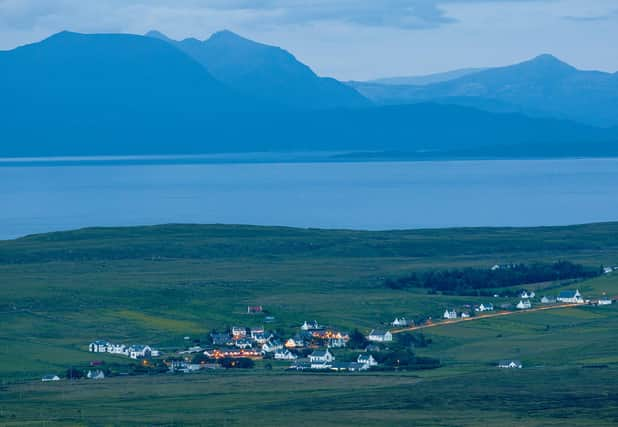Scotland's Gaelic communities to 'die out' in 10 years given 'remote' language policy, report warns


Researchers from the University of the Highlands and Islands Language Sciences Institute and the Soillse research collaboration conducted a series of interviews across the Westerns Isles, Staffin in the Isle of Skye and the Isle of Tiree for the study.
They found social use of Gaelic at the “point of collapse” with around 11,000 vernacular speakers found largely among the over 50s with very low levels of the language now spoken in the home.
Advertisement
Hide AdAdvertisement
Hide AdIt is predicted that the community use of Gaelic in the community will reach the “moribund stage” within 10 years if current trends continue, researchers found, years, with only isolated networks of elderly speakers left.
Professor Conchúr Ó Giollagáin, who heads Gaelic research at the University of the Highlands, said that the Scottish Government policy to preserve and promote Gaelic had focussed on schools, the media and academia and that it had failed to relate to those living in Gaelic speaking communities.
He said: “It is important that we are clear about the immense scale of the challenges involved in reversing the ongoing decline in the use of Gaelic in these areas.”
Researchers, who have published their findings today in a new book, The Gaelic Crisis in the Vernacular Community, said a Gaelic community trust should be set up in the islands to offer Gaelic-led support around families, employment and young people to help create confident social users of the language.
He added: “If we want Gaelic communities to survive we need to devise a social policy rather than a symbolic policy. If we fail to do that we will have Gaelic learners and Gaelic officials, but no Gaelic community.
“Yes, we have developed a Gaelic policy but this hasn’t helped to empower the Gaelic speaking communities to take on their own challenges. As a result, the Gaelic policy is irrelevant to them. The idea of Gaelic promotion in a Gaelic community is redundant to them, it is an abstract policy, it makes no sense.”
Analysis by the research team found that Gaelic speaking began to dramatically fall away in the islands from 1981 onwards.
Professor Giollagáin said the decline was part of the “social and economic modernisation” of the islands with “new social players” moving to the islands to take up employment opportunities. Changing family dynamics, with Gaelic speakers marrying English speakers, was also a factor, he added.
Advertisement
Hide AdAdvertisement
Hide AdOf the resident population aged three and over, 80 per cent of islanders aged three and over reported an ability to speak Gaelic at the time of the 1981 Census with the figure falling to 52% at the time of the 2011 Census.
Meanwhile, over the period between 1981-2011, there has been a faster rate of decline in the 3-17 age group with an ability in Gaelic when compared to those aged 50 and over.
THe study also found that around 25 per cent of family households use Gaelic at home compared to the 58 per cent of individuals who speak the language.
When this falls to less than 15 per cent of homes against a population where 45 per cent of people use the language, the Gaelic speaking commuity will enter is final stages, researchers said.
A Scottish Government spokesperson said: “The Gaelic language is a vital part of Scotland’s cultural identity and Ministers support efforts to improve access for speakers to learn and use the language. We are interested in the proposals in the book and look forward to discussing the value of current initiatives and the new structures suggested to strengthen Gaelic in the islands.”
A message from the Editor:
Thank you for reading this story on our website. While I have your attention, I also have an important request to make of you.
With the coronavirus lockdown having a major impact on many of our advertisers - and consequently the revenue we receive - we are more reliant than ever on you taking out a digital subscription.
Subscribe to scotsman.com and enjoy unlimited access to Scottish news and information online and on our app. With a digital subscription, you can read more than 5 articles, see fewer ads, enjoy faster load times, and get access to exclusive newsletters and content. Visit https://www.scotsman.com/subscriptions now to sign up.
Advertisement
Hide AdAdvertisement
Hide AdOur journalism costs money and we rely on advertising, print and digital revenues to help to support them. By supporting us, we are able to support you in providing trusted, fact-checked content for this website.
Joy Yates
Editorial Director
Comments
Want to join the conversation? Please or to comment on this article.